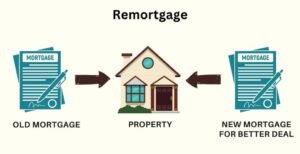
Months of tireless searching, weekend viewings, and countless cups of coffee at open houses finally paid off. You found it – the perfect place. Sunlight streamed through the bay windows, the layout flowed seamlessly, and the backyard whispered possibilities of summer barbecues. Elated, you submitted an offer, your heart pounding with anticipation. Then, the joyous news arrived – your offer was accepted! Dreams of housewarming parties and creating a life within those walls danced in your head. But as you envisioned paint colors and furniture placement, a dark cloud emerged on the horizon – gazumping.
What is ‘Gazumping’?
‘Gazumping’ occurs when, after you’ve had your offer accepted (verbally or with a formal acceptance letter), the seller receives a higher offer from another buyer and decides to accept that instead. This can be a crushing blow, leaving you frustrated and questioning the fairness of the process, especially after months of emotional investment in the property.
Why Does Gazumping Happen?
There are a couple of reasons why sellers might gazump:
The Allure of More Money: It’s simple – a higher offer is tempting, especially in a competitive market.
Seller’s Remorse or a Change of Heart: Sometimes, sellers might have second thoughts about the accepted offer, particularly if there’s a delay in the process.
Can You Avoid Gazumping Entirely?
Unfortunately, there’s no foolproof way to prevent gazumping. However, you can take steps to strengthen your position and minimise the risk:
Act Quickly and Decisively: Once you’ve found the right property, move swiftly with your offer. The faster you get your offer accepted, the less time there is for gazumping to occur.
Get a Mortgage Decision in Principle (‘DIP’): Having a DIP demonstrates you’re a serious buyer and can move quickly with the purchase. If you’re one of our clients, we make sure you have this in advance so you’re a strong buyer from the start.
Offer a Fair Price: While you can negotiate, avoid lowball offers that might make the seller more receptive to a higher bid later (particularly lowball offers that cannot be reasonably justified).
Clear Communication is Key: Maintain open communication with the seller and their agent. Express your enthusiasm for the property and keep them updated on your progress as appropriate (e.g., mortgage application status).
Gazumped? Don’t Despair!
While gazumping can be disheartening, it shouldn’t derail your homeownership journey. Here’s what to do if you encounter it:
Negotiate, if Possible: If the seller informs you of a higher offer, you can try to counteroffer. However, be prepared to walk away if negotiations don’t go your way (and avoid going beyond your maximum means).
Learn from the Experience: Analyse what might have strengthened your initial offer. Did you move too slowly? Consider these factors when making future offers.
Stay Positive and Keep Searching: The perfect property awaits! Don’t let one setback discourage you. There will be other opportunities, and with the knowledge you’ve gained, you’ll be better equipped to navigate the buying process.
Remember: Gazumping is a risk in the property market. By acting swiftly, presenting a strong offer, and maintaining clear communication, you can increase your chances of securing your dream home without the worry of being gazumped. So, stay informed, stay optimistic, and happy house hunting!






